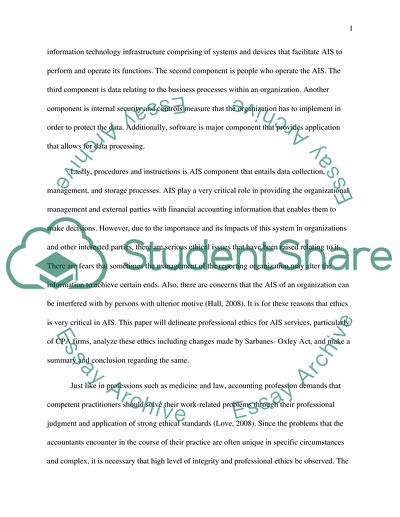Cite this document
(Professional Ethics in AIS Services Research Paper, n.d.)
Professional Ethics in AIS Services Research Paper. Retrieved from https://studentshare.org/professional/1764865-analysis-of-professional-ethics-applicable-to-ais-accounting-information-system-services-of-cpa-firms
Professional Ethics in AIS Services Research Paper. Retrieved from https://studentshare.org/professional/1764865-analysis-of-professional-ethics-applicable-to-ais-accounting-information-system-services-of-cpa-firms
(Professional Ethics in AIS Services Research Paper)
Professional Ethics in AIS Services Research Paper. https://studentshare.org/professional/1764865-analysis-of-professional-ethics-applicable-to-ais-accounting-information-system-services-of-cpa-firms.
Professional Ethics in AIS Services Research Paper. https://studentshare.org/professional/1764865-analysis-of-professional-ethics-applicable-to-ais-accounting-information-system-services-of-cpa-firms.
“Professional Ethics in AIS Services Research Paper”, n.d. https://studentshare.org/professional/1764865-analysis-of-professional-ethics-applicable-to-ais-accounting-information-system-services-of-cpa-firms.


